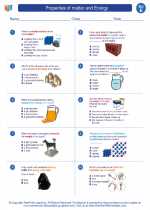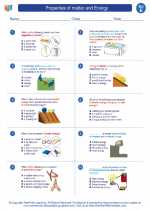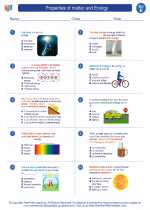Properties of matter and Energy -> hydrogen
Atomic Structure
Hydrogen consists of one proton and one electron. It is the only element that does not contain any neutrons in its most common form, known as protium.
Isotopes
Hydrogen has three isotopes: protium, deuterium, and tritium. Protium is the most common, while deuterium and tritium are isotopes with one and two neutrons, respectively.
Occurrence
Hydrogen is abundant in the universe, primarily in stars and gas giant planets. On Earth, it is found in water, hydrocarbons, and other organic compounds. It is also a component of the Earth's atmosphere, though in relatively small amounts.
Uses
Hydrogen has a wide range of applications, including:
- As a fuel for powering vehicles, either through combustion or in fuel cells
- In the production of ammonia for fertilizers
- In the synthesis of various chemicals, including methanol and hydrochloric acid
- As a coolant for electrical generators and other industrial processes
Properties
Some key properties of hydrogen include:
- It is the lightest element, with a low density
- It has the highest energy content by weight, making it an efficient fuel
- It has a high thermal conductivity and is used in cryogenics
- It forms compounds with a wide variety of elements, including metals, non-metals, and metalloids
Safety Considerations
Hydrogen is highly flammable and can form explosive mixtures with air. It is important to handle and store it with care, particularly in industrial and transportation uses. Proper ventilation and safety protocols are crucial when working with hydrogen.
Environmental Impact
Hydrogen is often touted as a clean and sustainable energy source, especially when produced using renewable methods such as electrolysis of water. However, the environmental impact of hydrogen production and storage, as well as the potential for hydrogen leaks, must be carefully managed to ensure its overall sustainability.
.◂Science Worksheets and Study Guides Fifth Grade. Properties of matter and Energy

 Worksheet/Answer key
Worksheet/Answer key
 Worksheet/Answer key
Worksheet/Answer key
 Worksheet/Answer key
Worksheet/Answer key
 Vocabulary/Answer key
Vocabulary/Answer key
 Vocabulary/Answer key
Vocabulary/Answer key
